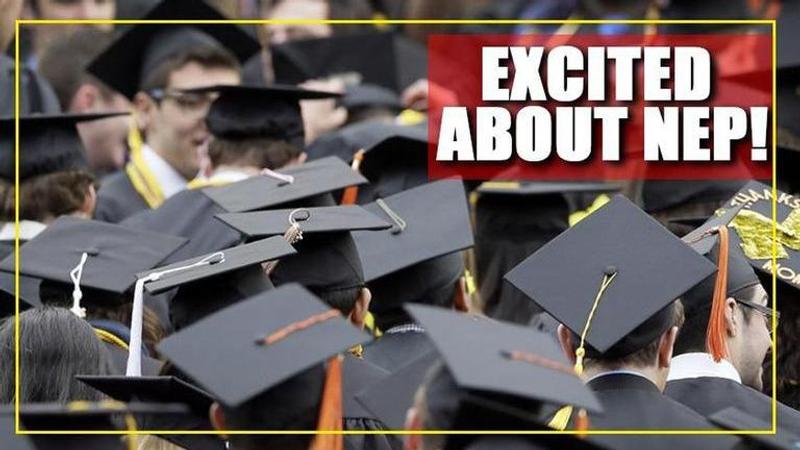Published 11:41 IST, September 15th 2019
UK Universities excited about India's New Education Plan: Steve Smith
According to Steve Smith, the academic fraternity of higher education in the UK is excited about changes outlined by India in its New education policy draft

According to Steve Smith, Chair, Universities UK International (UUKI), which is a body representing higher education institutions in the United Kingdom, the academic fraternity of higher education in the UK is excited about changes outlined by India in the draft of its New Education Policy (NEP) and is looking forward to positive changes.
Universities in India and the UK to work together
Smith, who was in Delhi recently as part of a delegation of Vice-Chancellors of over 20 universities from the United Kingdom to explore opportunities of mutual interest in the higher education sector with Indian stakeholders, including the government and the institutes said “It is a good draft. We are excited about the changes outlined in the draft to explore its content more and see what shape it takes. We feel positive about some of the proposals and it's a good time to identify genuine areas of overlap between the two countries, where our interests coincide, how can we work together and can be parts of these changes.”
"It's a good draft"- Steve Smith
His visit to the national capital was part of a higher education-focused bilateral programme; UK-India Education and Research Initiative (UKIERI), helmed by the British Council. In 2006, India and UK entered into a long-term bilateral programme, UKIERI, with a focus on higher education.
NEP was in BJP's manifesto
The UKIERI is a multi-stakeholder programme involving stakeholders and institutions of higher education sector from both countries. The British Council is one of the delivery partners of the UKIERI along with UUKi and Association of Colleges.
A new education policy was part of the Bharatiya Janata Party's manifesto ahead of the 2014 general election. The existing NEP was framed in 1986 and was revised in 1992.
A panel headed by former ISRO chief K Kasturirangan had submitted the draft of the new National Education Policy to Union HRD Minister Ramesh Pokhriyal ‘Nishank’ when he took charge of the Ministry. The draft was further put in public domain to seek feedback from various stakeholders after which the HRD Ministry received over 2 lakh suggestions about the same.
"What we have liked about the NEP draft is the introduction of flexibility in study options and crucially the formation of a national research body. We followed that process in the UK, it's very similar to the same thinking going on in the UK with formation of UKIERI. We believe that two countries are travelling on the same path when it comes to expanding their research base, we think it (NEP) will offer incredible opportunities," Director North, British Council India, Tom Birtwistle said.
On a related note, addressing the long-standing demand to boost the number of Indian students choosing British universities, the UK government had earlier this week announced a new two-year post-study work visa route for all international students.
The country had ended its two-year post-study work visa offer during Theresa May's term as UK home secretary in 2012 and the move has widely been seen as responsible for a major drop in student numbers from countries like India.
"The changes in visa policy had been on discussion for long and finally it being announced is a welcome move," Smith said.
Furthermore, the UK universities are also keen to have a positive outcome on the mutual recognition of Masters degrees by the two countries. India does not recognise a one-year masters degree which is given by all British universities since India has a two-year degree. The norm makes it difficult for Indian students to pursue a doctorate in India after a Masters in the UK.
"The issue has been a subject of bilateral discussions between the two governments. The situation is understood on both sides and we would like it to reach a positive outcome soon," Smith said.
(With PTI Inputs)
Updated 13:09 IST, September 15th 2019




